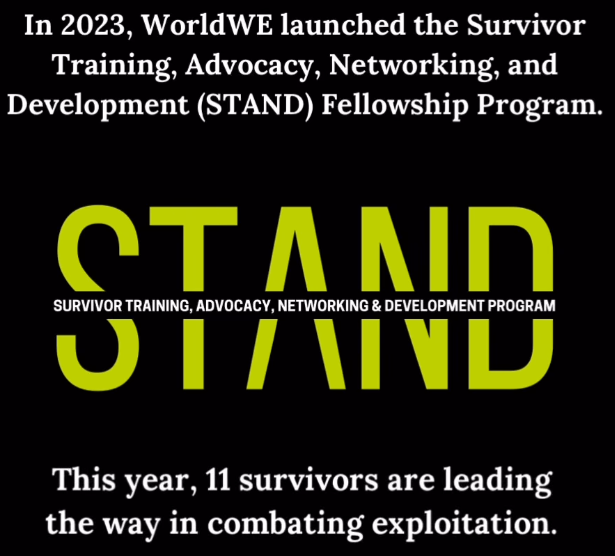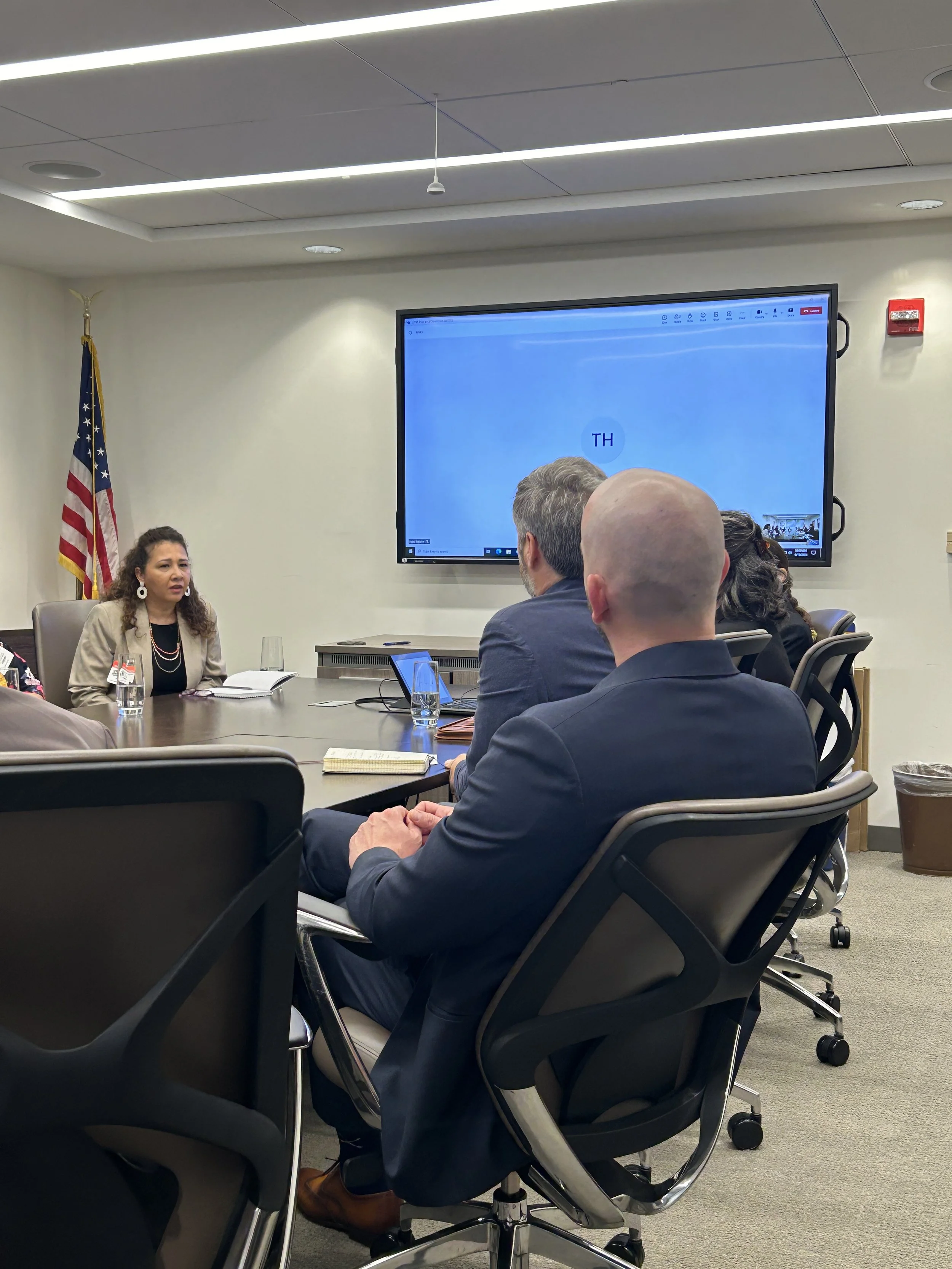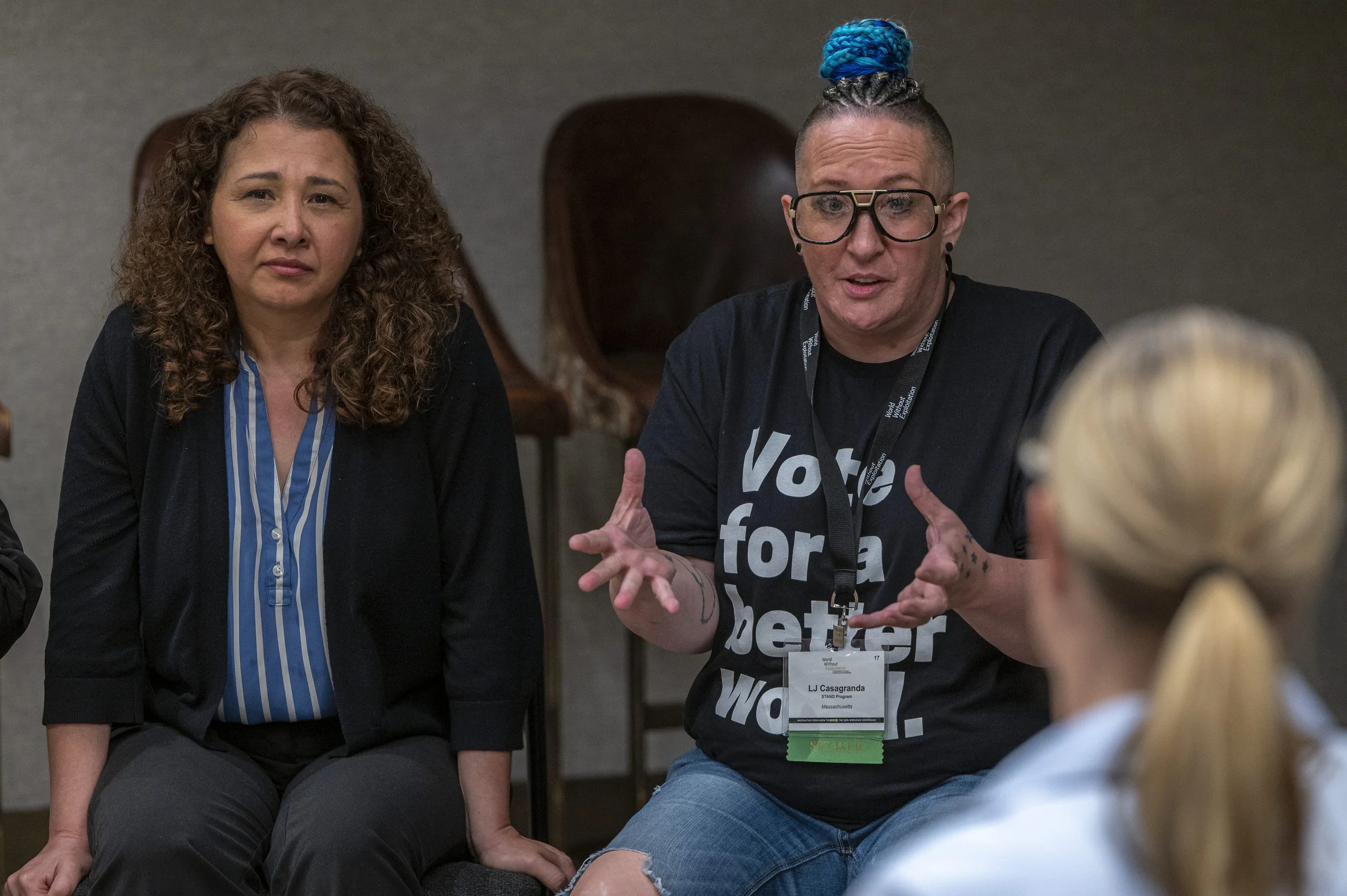STAND Program at World Without Exploitation
The STAND Fellowship Program (Survivor Training Advocacy Networking and Development) is a survivor-led initiative that brings together survivors from across the U.S. to give them the skills they need to amplify their voices in advocacy and leadership. Developed and launched during my tenure with World Without Exploitation, this program empowers survivors to engage in policy advocacy, build their networks, and lead systemic change. Through training, mentorship, and collaboration, STAND equips its participants to become impactful advocates in the anti-exploitation movement.
Process
-
Survivors often face barriers to participating in advocacy and policymaking, including limited access to training and leadership opportunities. The STAND Program was created to address these challenges by providing survivors with the tools, support, and platform to make change in their communities while driving the anti-exploitation movement toward a more survivor-centered place.
-
In designing the STAND Program, my approach centered on creating a strong foundation for participants and the organization to ensure participants' success, focusing on aspects of the program that would promote skill-building, technical knowledge, and leadership development. Key steps included:
Selective Application Process: Developed an application and interview process to identify participants at a place where they could thrive in the program, ensuring a supportive and productive cohort.
Comprehensive Curriculum: Created a curriculum and attained expert trainers from within and outside the organization, thereby balancing professional development with technical training, equipping participants with the skills and knowledge needed to be effective advocates and leaders.
Mentorship and Guidance: Designed a mentorship structure where participants met monthly with WorldWE staff, both individually and as a cohort, to build presentations, troubleshoot challenges, and refine their advocacy efforts.
Access to External Resources: Provided participants with external learning materials, tools, and opportunities to enhance their understanding and impact.
Expanded Training Opportunities: Integrated participants into other WorldWE trainings, conferences, and events to amplify their voices and provide valuable practice in a safe environment on public speaking and advocacy.
Leadership Tours: Introduced a “tour” aspect to the program, where participants visited key organizations like the State Department J/TIP Office, a member of Congress, and the National Center for Missing and Exploited Children. These visits encouraged participants to learn while actively contributing to the movement, giving them critical experience to build confidence and leadership skills.
Through these strategies, the program fostered an environment where survivors could confidently grow as leaders and advocates, ensuring their voices were heard nationally.
-
The STAND Program has empowered its participants to become effective advocates and leaders within the anti-exploitation movement; many have gone on to further their careers, receive fellowships, and take leadership roles in local initiatives. Participants have testified at legislative hearings, contributed to educational events, strengthened their local advocacy efforts, and even had op-eds published. The program has also fostered greater collaboration across state lines, uniting survivors from diverse backgrounds to drive systemic change.
-
11 survivor leaders trained in the first two cohorts.
Over 50 trainings, engagements, or direct advocacy actions taken by STAND participants.
Participants have actively contributed to policy advocacy and public awareness campaigns in 6 states.
2 Op-Eds published by STAND participants.








